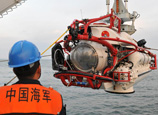
By Cui Yadong (member of the Standing Committee of the CPC Guizhou Provincial Committee, secretary of the Commission of Politics and Law, director of Guizhou Provincial Drug Control Commission, and chief of the Public Security Department)
Drug rehabilitation is the top priority of drug control, and a most difficult link, whose results are also the most difficult to consolidate.
On December 29, 2007, the Anti-drug Law of the People’s Republic of China was passed at the 31th session of the 10th Standing Committee of the National People's Congress, and took effect on June 1, 2008. It is the first law of the New China that completely regulates drug control, and it fully demonstrates the Chinese government’s determination to drug control, and shows China’s accumulation and summary of drug control experience for many years. In the Law, the fourth chapter of drug rehabilitation measures are specially set, which explicitly stipulate that drug addicts must receive community-based drug rehabilitation and recovery. This is a hard and fast rule in the Anti-drug Law, integrating community-based drug rehabilitation and recovery into laws and regulations on the basis of China’s successful experience on drug control. It is also a new drug control measure. Meanwhile, physical detoxification, physical and mental recovery, and integration into the society are proposed to strengthen the new ideas, methods, and requirements concerning drug rehabilitation and recovery. In drug control practices however, how to carry out the requirement of integrating physical detoxification, physical and mental recovery, and integration into the society, as well as the community-based drug rehabilitation and recovery, and achieve results is not only an “inherent problem,” but also a “new subject” on drug control.
In drug control practices, great difficulties exist in drug abuse prohibition, rehabilitation and recovery, and return to the society: it is difficult to consolidate the results of drug rehabilitation, manage and control drug rehabilitation personnel, and enable them to integrate into the society, and the relapse rate is high. Due to such difficulties, a vicious circle, featuring drug abuse→compulsory detoxification→relapse→compulsory re-detoxification→relapse again, comes into being, which is not only a problem troubling and restricting the drug control in Guizhou, but also a global issue.















 Busiest line in Beijing: Subway line 10 has reached a daily transportation of 1 million passengers on average
Busiest line in Beijing: Subway line 10 has reached a daily transportation of 1 million passengers on average


![]()
